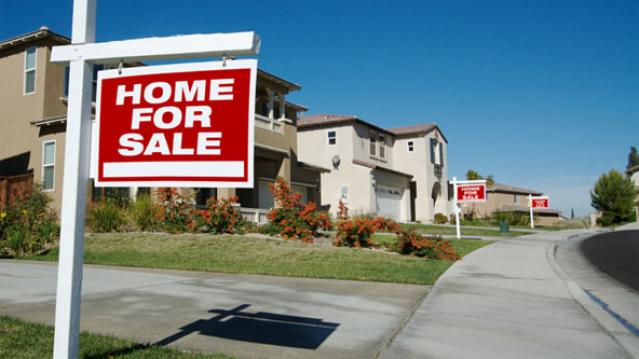Garage or Backyard? Here’s What First-Time House Buyers Want

More than two-thirds of potential first-time homebuyers want a house in move-in condition, and 43 percent are looking for a place in the burbs.
Beyond that, first-time buyers are most interested in a home with a backyard or pool, striking design, and smart or energy efficient technology, according to the TD Bank First-Time Home Buyer Pulse.
“It’s encouraging to see interest from the first-time homebuyers who have been cautious for much of the housing recovery,” TD Bank Head of Pricing and Secondary Markets Scott Haymore said in a statement. “Consumers are gaining confidence in the economy and many are looking to enter the housing market within the next two years.”
Related: Why First-Time Home Buyers Are Flocking to Tennessee
Last year, first-time homebuyers comprised 38 percent of the market, according to the National Association of Realtors.
Among those surveyed, 62 percent want to make a down payment of at least 20 percent, but nearly two-thirds said they were still saving up for it. Almost half said they needed to pay down debt before they could buy a house.
The average down payment in the first quarter of 2015 was $57,710, reports RealtyTrac. Entry-level buyers usually put down less money than repeat buyers, and are more likely to take advantage of Federal Housing Administration loans, which allow down payments of as little as 3 percent for those who qualify.
Those who can’t get an FHA loan can still put down less than 20 percent by buying private mortgage insurance, with annual premiums of between 0.5 percent and 1 percent of the loan amount.
Maybe Don’t Count Out Obamacare Repeal Just Yet

Sen. Bill Cassidy (R-LA) told reporters on Friday that he’s getting close to securing enough votes to pass the last-ditch ACA repeal and replacement bill he’s put forth with Sens. Lindsey Graham (R-SC), Dean Heller (R-NV) and Ron Johnson (R-WI).
“I am pretty confident we’ll get there on the Republican side,” Cassidy said. “We’re probably at 48-49 [votes] and talking to two or three more.” And Senate Majority Leader Mitch McConnell has asked the Congressional Budget Office to estimate the effects of the Cassidy-Graham bill, which would speed up the scoring process.
Of course, those last two or three votes have been the challenge for the GOP all along, and they may not be any easier to round up this time. Sen. Rand Paul (R-KY), who voted for a prior repeal bill, said Friday that he won't support this one. Plus, opponents are already stepping up their criticisms about the effects of the bill. And time is running out: Cassidy and his colleagues only have until September 30 to pass the bill this year under a process that would require only 50 supporters in the Senate. So while the Obamacare repeal may still have life, it remains a longshot.
Orrin Hatch Signals Just How Complicated Tax Reform Will Be

GOP leaders said Wednesday that they'd issue a more detailed framework of their tax overhaul the week of September 25. But while lawmakers are eager to get more details about the outline being hashed out by the so-called Big Six team of negotiators, Republicans are still divided on key elements of the plan — going from blueprint to bill is bound to be a contentious process.
In his opening remarks at a Senate Finance Committee hearing today on individual tax reform, Sen. Orrin Hatch (R-UT) said the plan from the Big Six — of which he is one — "will not dictate the direction" the tax-writing committee takes. "Anyone with any experience with the Senate Finance Committee knows that we are not anyone’s rubber stamp," he said. "If a bill – particularly on something as consequential as tax reform – is going to pass in this committee, the members of the committee will have to be involved in putting it together."
Oh, and remember: Republicans also need to agree on a budget before they can push through tax reform without Democratic votes.
Aging Baby Boomers Drive Down the Uninsured Rate
About 10,000 boomers turn 65 every day, becoming eligible for Medicare on their birthdays. The Census Bureau says that the sheer number of boomers entering Medicare is affecting the uninsured rate for the whole population. That rate fell to 8.8 percent in 2016, down from 9.1 percent a year earlier, with most of the decline driven by the aging of the post-war generation. (Wall Street Journal)
Social Security Kept 26.1 Million Out of Poverty Last Year
Social Security kept more than 26 million people out of poverty last year, according to a new report from the Census Bureau. Refundable tax credits such as the one for earned income kept 8.2 million people out of poverty, while food stamps lifted 3.6 million above the line, housing subsidies reduced the number of poor people by 3.1 million and unemployment insurance kept 680,000 out of poverty. Overall, the Census Bureau reported, the poverty rate was 12.7 percent, while a more sophisticated alternative measure that factors in government programs for low-income families put the rate at 13.9 percent, down from 14.5 percent in 2015.
Read more about the new Census Bureau numbers here.
Tax Reform on Menu for Trump's Dinner with Dems
President Trump is set to host three moderate Democratic senators for dinner on Tuesday as part of his push for tax reform, Politico reports. The Democrats on the guest list: Sens. Joe Manchin of West Virginia, Heidi Heitkamp of North Dakota and Joe Donnelly of Indiana, all of whom are up for reelection in 2018 in states Trump won last November. Vice President Mike Pence and GOP Sens. Orrin Hatch of Utah, John Thune of South Dakota and Pat Toomey of Pennsylvania are also slated to attend.
